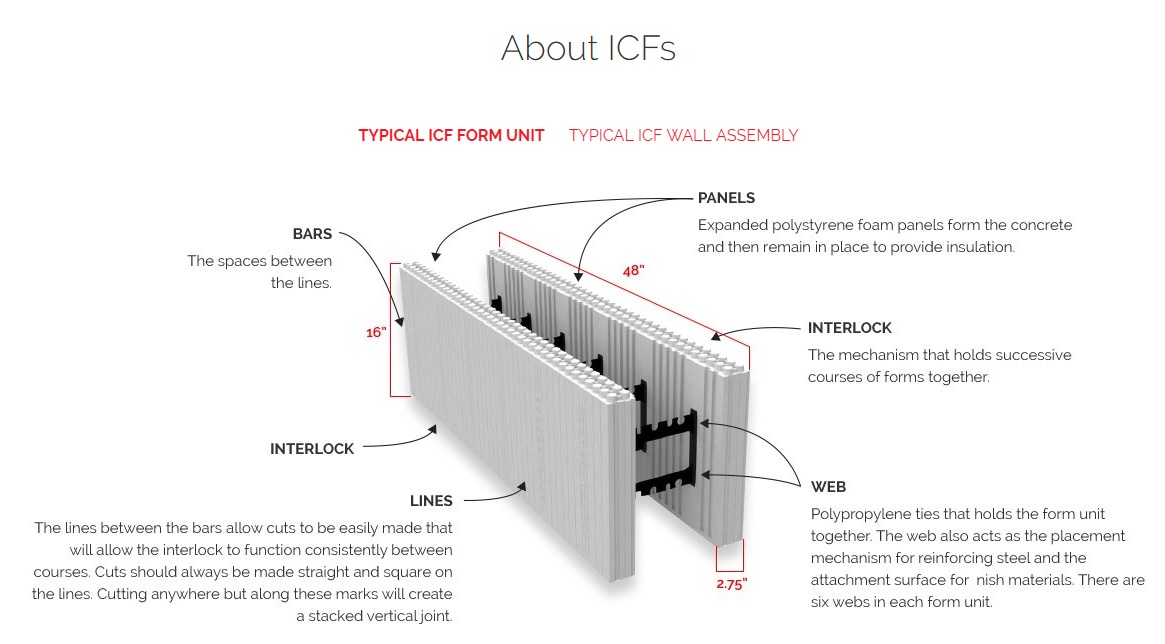
Insulating concrete form or insulated concrete form (ICF) is a system of formwork for reinforced concrete usually made with rigid thermal insulation that stays in place as a permanent interior and exterior substrate for walls, floors, and roofs. The forms are interlocking modular units that are dry-stacked (without mortar) and filled with concrete. The units lock together somewhat like Lego bricks and create a form for the structural walls or floors of a building. ICF construction has become commonplace for both low-rise commercial and high-performance residential construction as more stringent energy efficiency and natural disaster-resistant building codes are adopted. ICFs may be used with frost-protected shallow foundations (FPSF).
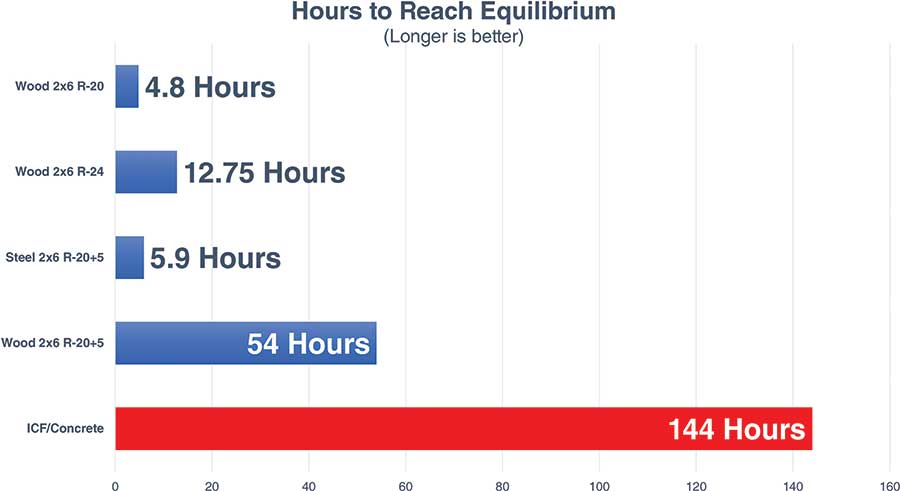
Insulated Concrete Forms (ICFs) are gaining popularity as a home building material, and as demand for high-performance homes increases, so does interest in ICFs. They offer a host of benefits, such as lower energy bills, faster construction times, decreased maintenance, and quieter interiors, but the primary reasons behind their growing popularity is their remarkable energy efficiency and strength.
The key to all of this is the remarkable combination of foam and concrete. Regardless of the brand of ICF chosen, all consist of two rigid EPS foam panels that sandwich a core of reinforced concrete. The concrete provides exceptional strength and thermal mass; the foam provides a continuous layer of high-performance insulation, and doubles as an ideal substrate for many finishes.
1. Thermal Insulation
Because ICF blocks are so well insulated, they are often able to effectively eliminate the need for traditional thermal insulation. ICF blocks keep heat in and cold out with extreme efficiency, allowing homeowners to cut back on their energy bills each month and can even give them the opportunity to downsize to smaller HVAC units.
This thermal value extends far beyond homes and other residences. In fact, ICF is a popular building material for in-ground pools.
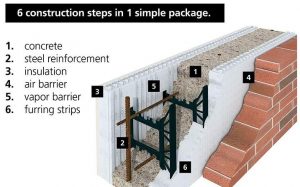
2. Energy Efficiency
The thermal efficiency of ICF very often translates to tangible monetary savings for building owners, who are able to use fewer insulation materials during construction and spend fewer resources maintaining comfort after construction.
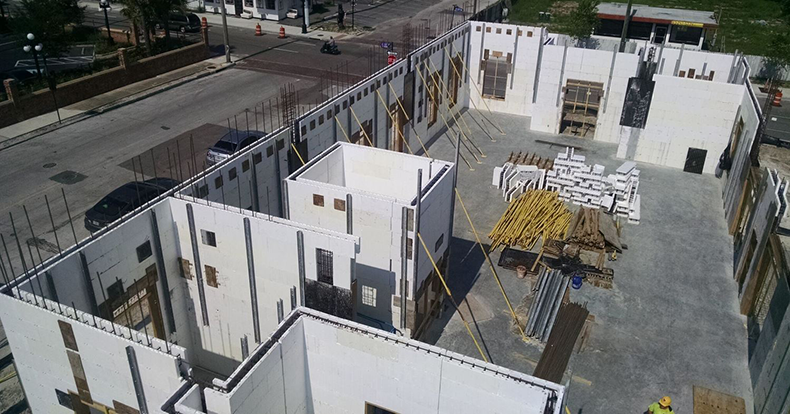
But efficiency is a double-sided coin with ICF. In addition to energy efficiency for the home, ICF brings significant efficiency to the job site with ease of installation. Whether it’s an ICF pool, basement, or other structure, the lightweight design of ICF and the lack of need for heavy equipment in the construction process makes it affordable and straightforward to build with ICF. With less equipment, labor, and time, ICF can make construction more affordable and efficient from day one.
Owners of ICF buildings have experienced as much as a 60% reduction in their energy bills as a result of the system. ICF also saves money during the building process due to the reduced manpower required for the simple building system.
3. Structural Integrity & Safety
Compared to other materials like wood, ICF blocks are extremely durable. They’re resistant to rot, mold, moisture, insect infestation, and other elements that could compromise the integrity of your building. They also stand up very well to harsh weather conditions like high winds and seismic activity.
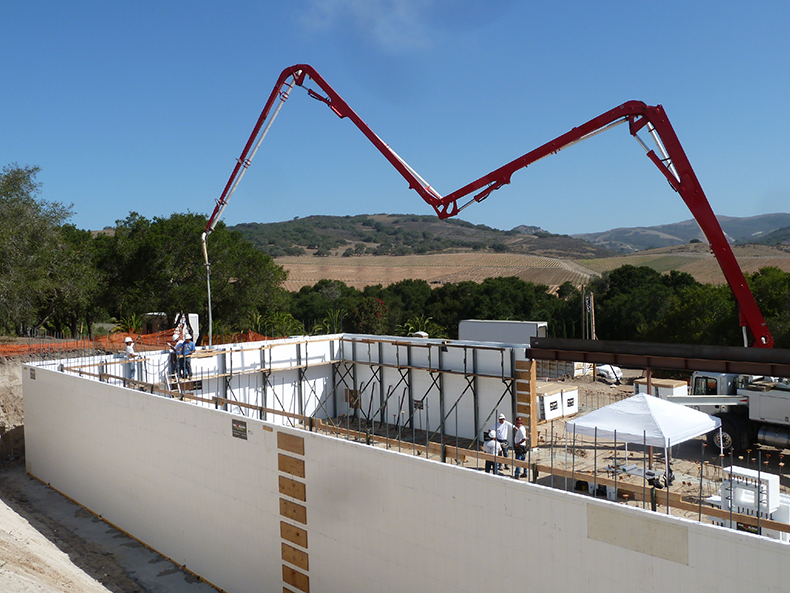
This is because of the steel ties that are specially designed and interlocked within each wall of ICF blocks. These ties keep the structure solid and intact during even the most extreme conditions.
For this reason, many extreme weather shelters and buildings in dangerous weather areas are now being built with ICF blocks. ICF homes and buildings have a proven track record of providing safety in these conditions.
In fact, it’s not uncommon for homeowners to receive lower insurance premiums after building an ICF basement or other project because insurance companies recognize the data on how safe, efficient, and durable ICF construction is.
ICF homes offer a level of safety no other building system can match. They are more than 10 times stronger than framed structures, and several times stronger than CMU “cinder block” construction as well. It’s a natural result of having exterior walls with a core of solid, steel-reinforced concrete.
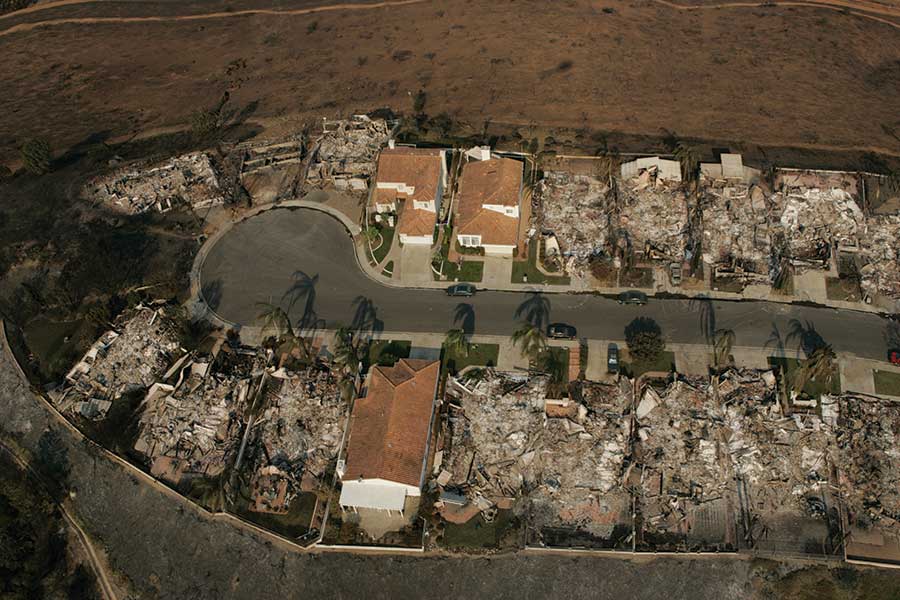
ICF homes have survived wildfires, arson attempts, hurricanes and tornadoes, storm surges, and drunken drivers. The military and law enforcement favor ICF construction because it offers ballistic and blasts protection.
A few years ago, the insurance industry set up a program to encourage homeowners to build more durably. The Fortified…For Safer Living program specifically encourages ICF use. In some areas of the country, insurance companies will give discounts for “Fortified” homes, or for ICF homes in general.
Still, many experts believe ICFs are the most cost effective and aesthetically pleasing way to protect occupants and their belongings from natural disasters.
When a raging wildfire swept through the suburbs of San Diego in the fall of 2007, it forced more than half a million people from their homes and destroyed more than 2,000 residences. On one suburban street in San Bernardino, every home on the block was burned to the ground, with the exception of three ICF homes, which a newspaper photographer captured standing virtually unscathed amid the charred wreckage surrounding it.
Contrary to popular belief, the foam used in ICFs will not burn. It will melt if exposed to high heat, but it will not contribute any fuel to the fire. In fact, it is virtually “self-extinguishing,” thanks to a flame retardant all of the leading ICF manufacturers add to the EPS foam.
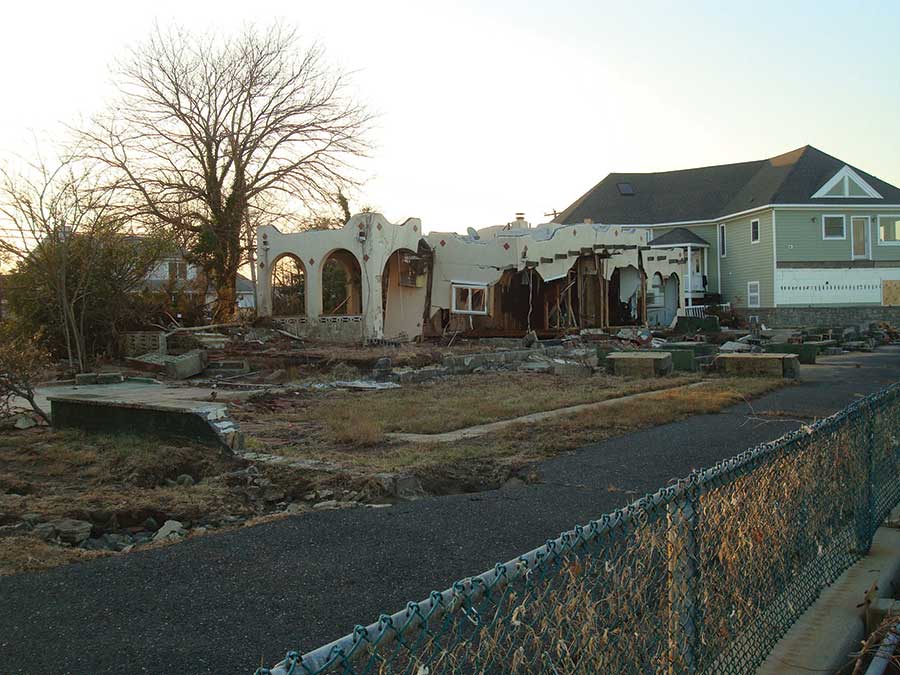
Other notable examples of ICF homes that have withstood disaster include a beachfront home in New Jersey that withstood Superstorm Sandy, despite having it’s siding scrubbed off by the pounding waves, and a Gulf Coast ICF house that withstood a 20-foot storm surge generated by Hurricane Katrina that swept the rest of the neighborhood down to bare foundations.
4. Acoustic Insulation
As an additional positive outcome to the outstanding thermal insulation, ICF also provides significant acoustic insulation between walls.
This makes ICF not only a good fit for residential projects where peace and quiet are a high priority, but also for commercial settings where soundproofing is essential to the core function of the building. For example, movie theaters are often constructed using ICF.
Therefore, not only does ICF often eliminate the need for traditional insulation material, but also prevents the necessity of installing acoustic insulation panels as well.
A few years ago, 75 ICF homeowners were surveyed about the features they appreciated most in their ICF homes. It’s no surprise that energy efficiency and disaster resistance topped the list. But benefits numbers three and four were comfort and quiet. In fact, more than 60% of ICF homeowners mentioned the quietness of their homes, versus only 2% of their wood frame counterparts. This is due, once again, to the sound-absorbing qualities of EPS foam.
5. Speed of build
The ICF construction method is simple and not labor intensive. ICF blocks are made of extremely lightweight expanded polystyrene (EPS) and are hollow in the middle. The blocks are designed with a grid that interlocks and allows for easy stacking, very similar to ‘Lego’ blocks. This cuts out a huge portion of construction time compared to a traditional building style as they can be assembled very quickly. Following this, concrete is applied to the hollow blocks using a concrete pump, giving the building all the security of traditional concrete blocks in half the time. Furthermore, ICF construction is not weather dependent and so is unaffected by adverse conditions such as rain. This allows your project to proceed on schedule, with no setbacks.
6. Durability
ICF buildings are incredibly structurally sound due to the concrete and steel reinforcement that is incorporated into the walls. ICF buildings are considered ‘disaster-proof’, and have withstood the most adverse conditions, including hurricanes. Many ICF buildings come with a 60+ year guarantee and do not deteriorate at the rate of a traditional build. This durability ensures that ICF buildings maintain their quality and character throughout the duration of their lifespan, giving the owner great security and reassurance.
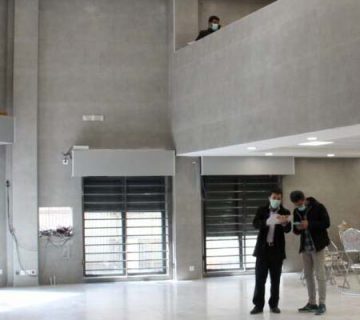
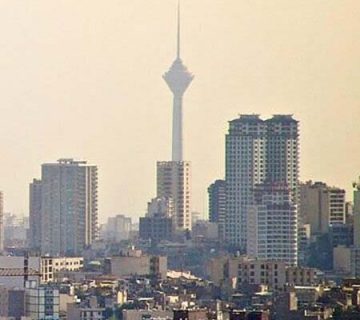
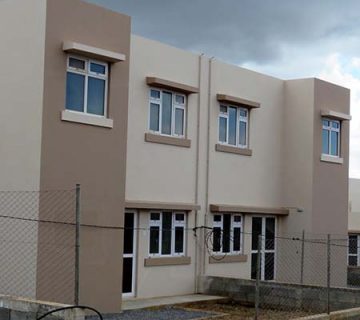
No comment